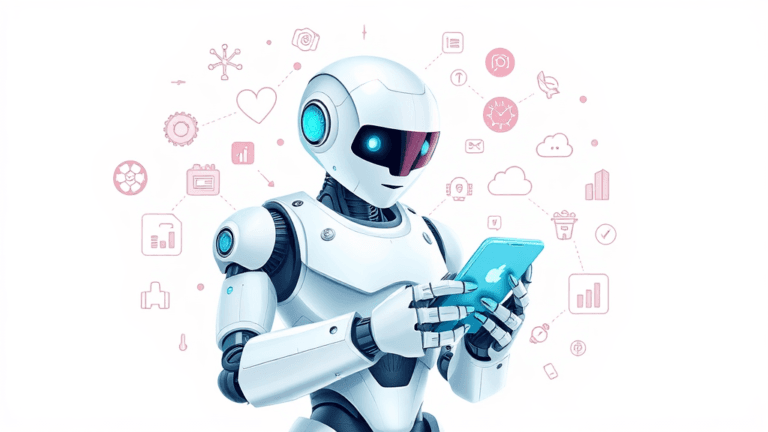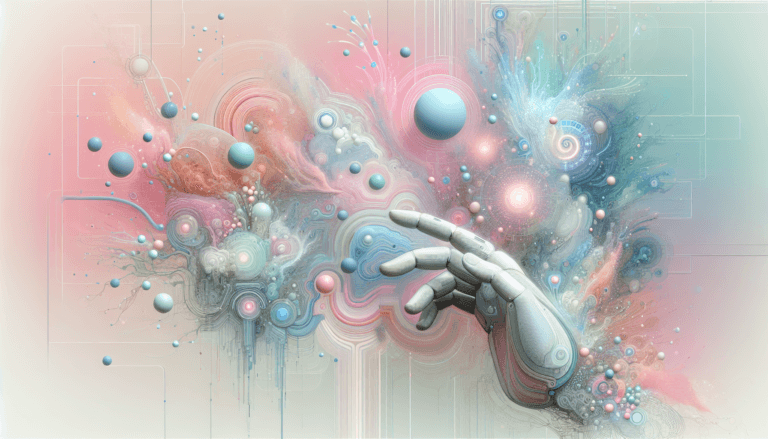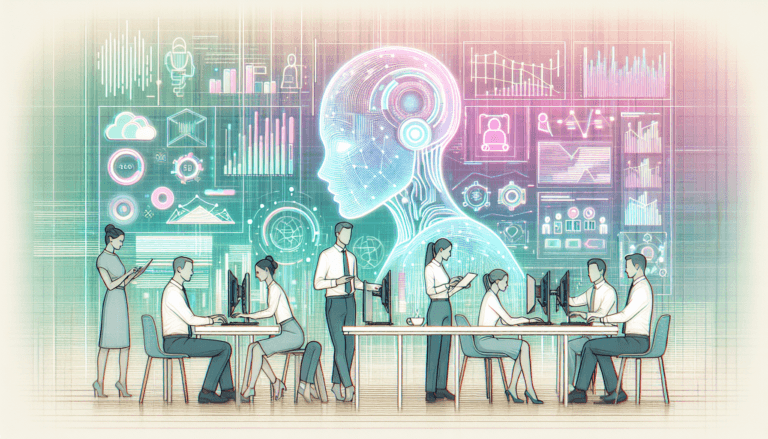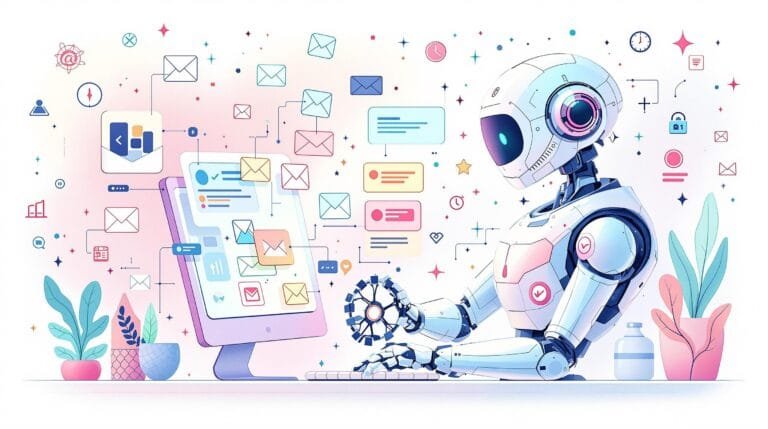
Unleashing the Power of AI Agents for Business
Estimated reading time: 12 minutes
Key Takeaways
- AI agents are transforming business operations by enhancing decision-making and automation.
- Different types of AI agents, such as task-specific and multi-agent systems, cater to various business needs.
- Implementing AI agents can lead to increased efficiency, cost reduction, and improved customer experiences.
- Challenges like data privacy and ethical implications must be addressed for successful AI integration.
- The future of AI agents includes advancements in NLP, explainable AI, IoT integration, and emotional intelligence.
Table of Contents
- Understanding AI Agents
- Intelligent Agents in Artificial Intelligence
- Examples of Intelligent Agents in AI
- Types of AI Agents for Business
- Benefits of AI Agents for Business Automation
- Implementing AI Agents in Your Business
- Challenges and Considerations
- Future of AI Agents in Business
- Conclusion
- Additional Resources
Understanding AI Agents
AI Agents Explained
AI agents might sound like something straight out of a sci-fi movie, but they are, in fact, very much real and incredibly useful. So, what exactly are AI agents? In simplest terms, these are software entities capable of perceiving their environment, making decisions, and taking actions to accomplish tasks. Now, don’t confuse them with general AI that wants to take over the world; AI agents in business are usually more specialized. They are tailored to specific tasks, optimizing operations and boosting productivity.
In practical terms, AI agents function as autonomous entities designed for specific business functions. They are the worker bees of your AI ecosystem, dedicated and efficient. Read more. Additionally, leveraging AI automation can significantly save your business time and money through automation.
Intelligent Agents
Here’s the thing: what makes an AI agent “intelligent”? It’s all about autonomy, reactivity, proactivity, and social ability. Imagine an agent that not only adapts to changes but also anticipates them, making decisions on the fly. These intelligent agents exhibit adaptability and decision-making capabilities that are crucial in today’s complex business landscapes. Learn about intelligent agents here.
Intelligent Agents in Artificial Intelligence
Artificial Intelligence and Intelligent Agents
Now, let’s get a bit techy. The relationship between artificial intelligence and intelligent agents is symbiotic. Think of it like this: intelligent agents are the hands and feet of AI. They serve as the interface between AI algorithms and real-world applications. By bridging the gap, they put AI theories to the test in practical scenarios. This is the magic of turning complex algorithms into tangible business solutions. Discover how they work.
Intelligent Agent in AI
Let’s zoom in on what an intelligent agent in AI can really do. Machine learning, natural language processing, computer vision—the list of capabilities is impressive. These agents are not just about following a set of rules; they learn and adapt, interacting with environments just like humans. In doing so, they don’t just analyze data; they derive meaningful decisions from it. Picture a digital Sherlock Holmes, minus the pipe. Explore the technologies here.
Examples of Intelligent Agents in AI
Intelligent Agent in Artificial Intelligence Examples
To illustrate, let’s look at a few real-world examples of intelligent agents flexing their AI muscles:
- Customer Service Chatbots: Remember the last time you needed help and a bot instantly responded? These chatbots handle customer inquiries, providing swift and personalized assistance. Read more.
- Autonomous Trading Agents: In the fast-paced world of finance, these agents analyze financial data and execute trades, reminiscent of Wall Street wizards of old. Explore autonomous trading.
- Predictive Maintenance Systems: These systems are the unsung heroes of manufacturing, continuously monitoring equipment and scheduling repairs before disaster strikes. Learn about maintenance systems.
- Virtual Assistants: Whether it’s Siri, Alexa, or Google Assistant, virtual assistants perform tasks based on voice commands, making life a tad easier. Meet virtual assistants.
Types of AI Agents for Business
Overview of AI Intelligent Agent Types
Diving deeper, AI agents come in different flavors, each serving unique business needs:
- Task-Specific Agents: These are the specialists of the AI world, designed for roles like data analysis and customer support. They’re the equivalent of having a dedicated employee for every task. Discover more. For businesses considering the integration of multi-agent systems, this guide to multi-agent systems and AI autonomy provides valuable insights.
- Multi-Agent Systems: Here’s a squad game for you! Collaborative networks of agents work together, solving complex problems as a team. Imagine a well-coordinated dance troupe, each agent playing its part. Explore multi-agent systems.
- Learning Agents: Picture a keen learner in your team, only they never stop learning. These agents improve over time, using experiences and feedback to grow smarter. Read about learning agents.
- Reactive Agents: Quick to react, these agents respond to environmental changes without holding onto past states. They’re like quicksilver, moving fluidly with the changes around them. Investigate reactive agents.
Benefits of AI Agents for Business Automation
Streamlining Processes with AI Agents for Business
Integrating AI agents into business operations isn’t just about staying competitive; it’s about transforming how work gets done:
- Increased Efficiency: AI agents labor tirelessly, handling repetitive tasks without fatigue. Imagine having a night owl employee who loves what they do. Learn more.
- Cost Reduction: By streamlining processes and reducing human error, AI agents save resources and money. Who doesn’t love a good bargain? Explore cost reduction.
- Enhanced Decision-Making: With access to real-time data, AI agents make informed decisions swiftly, putting gut feelings to shame. Think of them as the rainforests of data analytics—rich and fertile. Discover data analytics.
- Improved Customer Experiences: AI agents offer customers tailored interactions and speedy responses, turning users into fans. Understand customer engagement.
Implementing AI Agents in Your Business
Steps to Integrate AI Agents for Business
Thinking of hopping on the AI bandwagon? Here’s a roadmap to success:
- Identify Business Processes for Automation: First, pinpoint tasks that would benefit from an AI makeover. Checklist for automation. Additionally, understanding how multi-agent systems can enhance your operations is crucial.
- Select Appropriate AI Agent Solutions: Align your AI picks with your goals and existing systems. No one-size-fits-all here! Explore solutions.
- Ensure Data Integration and Quality: Quality data is the lifeblood of effective AI agents. Keep it clean and consistent. Discover data integration.
- Provide Employee Training: Knowledge is power, especially when it comes to collaborating with AI. Prep your teams! Training resources.
Best Practices for Deployment and Management
Start small with pilot projects. Monitor, assess, and tweak. Remember, Rome wasn’t built in a day. And neither is a perfect AI system. Foster a culture that embraces change and innovation.
Challenges and Considerations
Potential Obstacles in Adopting AI Agents
Ah, but it’s not all sunshine and rainbows. Every innovation has its hitches:
- Data Privacy and Security: Handling sensitive info? AI agents need robust protection plans in place. No one wants to see their data on the loose. Understand the risks.
- Ethical Implications: With great power comes… lots of scrutiny. AI decision-making ethics are under the spotlight. Explore ethical considerations.
- Integration Difficulties: Legacy systems resist modernization like old cats resist baths. Don’t worry; patience and finesse win the day. Read about integration.
- Resistance to Change: Humans love routine. Expect a dash of skepticism and plan effective change management strategies. Handle resistance gracefully.
Future of AI Agents in Business
Emerging Trends in AI Agents for Business
What does the crystal ball say about AI’s future? It’s looking pretty exciting:
- Advanced NLP: AI agents with sophisticated natural language skills means even better human interactions. Explore NLP.
- Explainable AI: Improved transparency helps build trust in AI’s decision-making. We all like to know how the magic happens. Learn about transparency.
- Integration with IoT Devices: Imagine AI agents talking to your smart fridge and thermostat—it’s happening. Discover IoT integration.
- Emotional Intelligence in AI Agents: AI that understands human emotions might sound far-out, but it’s closer than you think. Go deep on EQ in AI.
Preparing for Future AI Integrations
Stay updated, invest in scalable infrastructure, and cultivate a culture of learning. AI is a journey, not a destination.
Conclusion
In a nutshell, AI agents for business are game-changers. They streamline operations, cut costs, and deliver smarter decisions, keeping businesses competitive. As AI continues its upward trajectory, integrating these intelligent agents becomes a matter of when, not if. The future has arrived—so, what are you waiting for? Discover the future of AI.
And before you go, here’s a thought to ponder: With all these advancements, who knows? Maybe one day, AI agents will write blogs like this one, complete with witty banter and human touches. But until then, feel free to share your thoughts below!
Additional Resources
So, let’s embark on this AI journey together!






